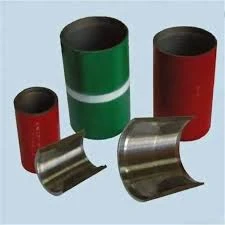- Afrikaans
- Albanian
- Amharic
- Arabic
- Armenian
- Azerbaijani
- Basque
- Belarusian
- Bengali
- Bosnian
- Bulgarian
- Catalan
- Cebuano
- Corsican
- Croatian
- Czech
- Danish
- Dutch
- English
- Esperanto
- Estonian
- Finnish
- French
- Frisian
- Galician
- Georgian
- German
- Greek
- Gujarati
- Haitian Creole
- hausa
- hawaiian
- Hebrew
- Hindi
- Miao
- Hungarian
- Icelandic
- igbo
- Indonesian
- irish
- Italian
- Japanese
- Javanese
- Kannada
- kazakh
- Khmer
- Rwandese
- Korean
- Kurdish
- Kyrgyz
- Lao
- Latin
- Latvian
- Lithuanian
- Luxembourgish
- Macedonian
- Malgashi
- Malay
- Malayalam
- Maltese
- Maori
- Marathi
- Mongolian
- Myanmar
- Nepali
- Norwegian
- Norwegian
- Occitan
- Pashto
- Persian
- Polish
- Portuguese
- Punjabi
- Romanian
- Russian
- Samoan
- Scottish Gaelic
- Serbian
- Sesotho
- Shona
- Sindhi
- Sinhala
- Slovak
- Slovenian
- Somali
- Spanish
- Sundanese
- Swahili
- Swedish
- Tagalog
- Tajik
- Tamil
- Tatar
- Telugu
- Thai
- Turkish
- Turkmen
- Ukrainian
- Urdu
- Uighur
- Uzbek
- Vietnamese
- Welsh
- Bantu
- Yiddish
- Yoruba
- Zulu
api tubing couplings
Understanding API Tubing Couplings An Essential Component in Oil and Gas Industry
API tubing couplings play a critical role in the oil and gas industry, acting as vital connectors that ensure the integrity and safety of oil and gas wells. These couplings serve as the junctions that link segments of tubing and pipelines, enabling the efficient transportation of petroleum and natural gas from deep within the earth to the surface. Understanding the characteristics and importance of API tubing couplings is essential for professionals in the industry to maintain operational efficiency and safety.
What are API Tubing Couplings?
API stands for the American Petroleum Institute, which sets the standards for various equipment used in the oil and gas sector. API tubing couplings are specifically designed to connect sections of tubing that carry oil and gas from sub-surface formations. These couplings come in various sizes and threading patterns, suitable for different types of petroleum operations.
The primary purpose of these couplings is to provide a secure and leak-proof connection between tubing sections. They are manufactured to endure the high pressures and temperatures encountered in oil extraction processes. The robustness of API tubing couplings ensures they can withstand harsh downhole conditions, minimizing the risk of failures that could lead to costly downtime or environmental hazards.
Types of API Tubing Couplings
API tubing couplings fall into several categories, each tailored to meet specific requirements. The most common types include
api tubing couplings

1. Standard Couplings These are basic couplings that meet standard API specifications, providing reliable connections in various applications. 2. Premium Couplings Offering enhanced performance, premium couplings are designed for high-pressure situations and provide improved resistance to wear and corrosion.
3. Threaded Couplings These couplings utilize threaded connections, which allow for easy installation and removal while maintaining a secure seal.
4. Welded Couplings Used in operations where additional strength is required, welded couplings provide an even more robust connection by integrating the coupling into the tubing through welding.
The Importance of Quality Standards
Quality and compliance with API standards are crucial when selecting tubing couplings. Couplings that do not meet established standards may lead to failures, resulting in hazardous spills, environmental damage, and significant financial losses. Therefore, companies must source couplings from reputable manufacturers who ensure their products comply with API specifications.
Conclusion
API tubing couplings are essential components in the oil and gas industry, enabling the safe and efficient transport of hydrocarbons from the ground to the surface. As demand for oil and gas continues to grow, the need for reliable, high-quality tubing couplings remains a priority. Professionals in the industry must prioritize the selection of couplings that adhere to API standards to ensure operational integrity, environmental safety, and the longevity of their equipment. By doing so, they can contribute to a more sustainable and responsible oil and gas sector, reinforcing the importance of safety and regulations in everyday operations. In a rapidly changing industry, understanding and utilizing high-quality API tubing couplings is more critical than ever.
-
Tubing Pup Joints: Essential Components for Oil and Gas OperationsNewsJul.10,2025
-
Pup Joints: Essential Components for Reliable Drilling OperationsNewsJul.10,2025
-
Pipe Couplings: Connecting Your World EfficientlyNewsJul.10,2025
-
Mastering Oilfield Operations with Quality Tubing and CasingNewsJul.10,2025
-
High-Quality Casing Couplings for Every NeedNewsJul.10,2025
-
Boost Your Drilling Efficiency with Premium Crossover Tools & Seating NipplesNewsJul.10,2025







